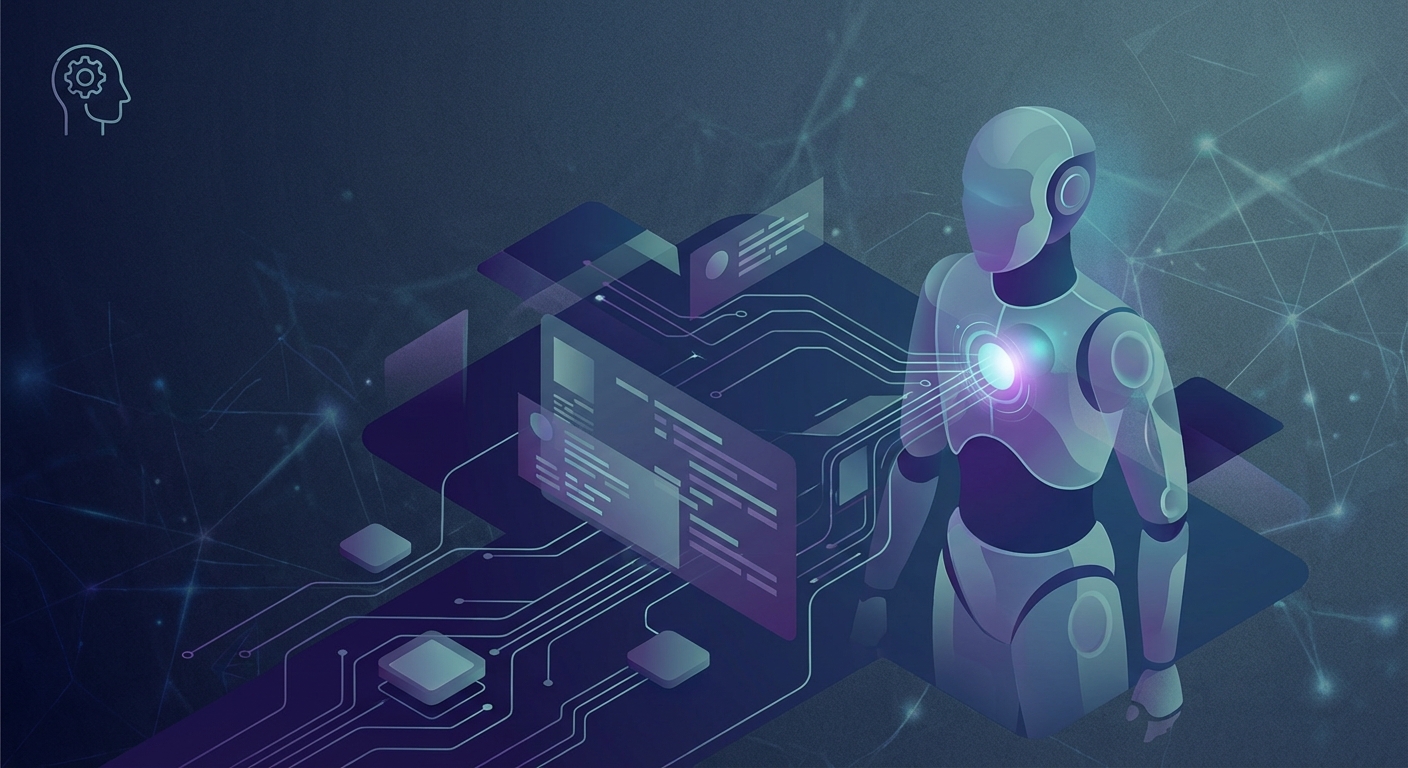Modeling Irrational Behavior to Improve AI Assistants
TL;DR
- This article covers the importance of modeling irrational human behavior to create more helpful and effective AI assistants. It explores how understanding computational constraints and 'inference budgets' can enable AI to predict and adapt to human errors, improving collaboration and overall performance. We'll discuss practical applications and future directions for this exciting research.
The Case for Irrationality: Why AI Needs to Understand Human Flaws
Okay, so, have you ever wondered why ai assistants aren't actually that helpful sometimes? It's like, they’re smart, but not street smart, you know? Well, it turns out it's because they don't get how irrational we humans can be.
See, it's like this:
- Humans, bless our hearts, don't always make the most logical decisions. We're emotional creatures, driven by biases and whims. Think about it; how many times have you bought something you didn’t really need just because it was on sale?
- Our brains aren't supercomputers, either. We have limited processing power, which means we cut corners and make quick decisions. This is called "bounded rationality," and it's why we don't always find the best solution, just a good enough one.
- Traditional ai models? They usually assume we're these perfectly rational beings. And because of it, they fail to account for our very human flaws.
When ai systems ignore how truly irrational we can be, things get messy. They misinterpret our intentions or miss opportunities to actually help us. Then we, the users, trust the system less, and pretty soon, no one wants to use it. This is where understanding our "bounded rationality" and how much "brainpower" we're willing to spend – our inference budget – becomes key to making ai actually useful.
So, what's next? We need ai that gets our weirdness. More on that later, though.
Introducing the 'Inference Budget': A New Approach to Modeling Human Behavior
Okay, so, what if ai could actually get why we do dumb stuff sometimes? Like, buy that tenth pair of shoes when we already have a closet full? That's where the idea of an inference budget comes in, and it's kinda cool.
The inference budget is basically a way to measure how much "brainpower" someone – human or ai – is using to solve a problem. It's like saying, "Okay, this person only has this much time or energy to think about this, so what are they likely to do?"
Here's the gist of it:
- It acknowledges that we don't always have the time or energy to find the perfect solution. You know, sometimes "good enough" is, well, good enough.
- The model infers how deeply an agent is planning based on their past actions. The more moves they make, the deeper the planning.
- This helps predict how someone might react when faced with a similar problem later on.
So, how do you figure out someone's inference budget? Good question. To get a handle on this, researchers at the Massachusetts Institute of Technology (MIT) are working on it. They run algorithms to solve problems and then compare those algorithmic solutions to how people actually solve them.
The model essentially aligns the algorithm's decisions with the agent's, figuring out where the agent stopped planning. By seeing how much effort the algorithm expends to match the human's "good enough" solution, they can infer the human's inference budget. For example, if a human makes a few moves in chess, and an algorithm needs to simulate many more moves to find a comparable outcome, it suggests the human had a smaller inference budget. This budget, then, can be used to predict future behavior. The cool thing? According to researchers like Athul Paul Jacob, this approach is "very interpretable." It makes sense that tougher problems need more planning, and stronger players plan for longer.
Now, let's talk about putting this into action...
Real-World Applications: From Chess to Navigation
Okay, so, you've got this fancy AI model that sort of gets human irrationality – now what? Turns out, there's a bunch of cool stuff you can do with it.
- Chess, believe it or not, is one area. The MIT folks figured out their model can predict moves in chess matches. Not just any moves, but it also kinda gauges how skilled the players are by understanding their inference budget. A player with a large budget might make more complex, long-term moves, while someone with a smaller budget might opt for simpler, immediate gains.
- Navigation is another big one. Think about those times you took a weird detour to avoid traffic or grab a coffee. The model can learn from those suboptimal routes, inferring your inference budget and understanding that you prioritized convenience over the absolute fastest path. This allows it to predict where you're actually trying to go, even if it's not the most direct route.
- And then there's communication. Ever try to figure out what someone really means when they're talking in circles? The model can analyze verbal cues, understanding that a person might not have the "inference budget" to articulate their exact thoughts perfectly. By modeling this, it can infer the intent behind the words, even if the phrasing is a bit jumbled. For instance, if someone says "I guess it's fine, but I'm not sure," the model, understanding their limited inference budget for clear expression, might infer they're actually unhappy.
All this can lead to ai that's way better at understanding us – and actually helping out.
The Future of AI Assistance: Collaboration and Adaptation
Okay, so, we've talked about how ai can get better at understanding us by modeling our inference budget and irrationality. Now, what does that actually mean for the future?
- AI steps in when we mess up: Imagine ai assistants that notice when you're about to make a bad call – like, maybe you're about to send a really snarky email. Knowing your inference budget, the ai can recognize that in your current state of mind (perhaps with a low inference budget due to stress), you're likely to make an impulsive, damaging decision. It could then jump in with a better option, perhaps suggesting a calmer phrasing or delaying the send. It's like having a buddy who's got your back – and your career.
- AI Adapts to our weaknesses: Instead of expecting us to be perfect, ai can learn where we tend to struggle, inferring our typical inference budget for certain tasks. Maybe you're terrible at directions; the ai could give you extra-clear instructions, or, y'know, just drive for you, because it understands your inference budget for spatial reasoning is limited. It adapts its own behavior to compensate for your limitations.
All of this, really, is about ai and humans teaming up more effectively. It's not about ai taking over, but about it understanding our quirks and helping us be our best selves. Which is what we all want, right?





